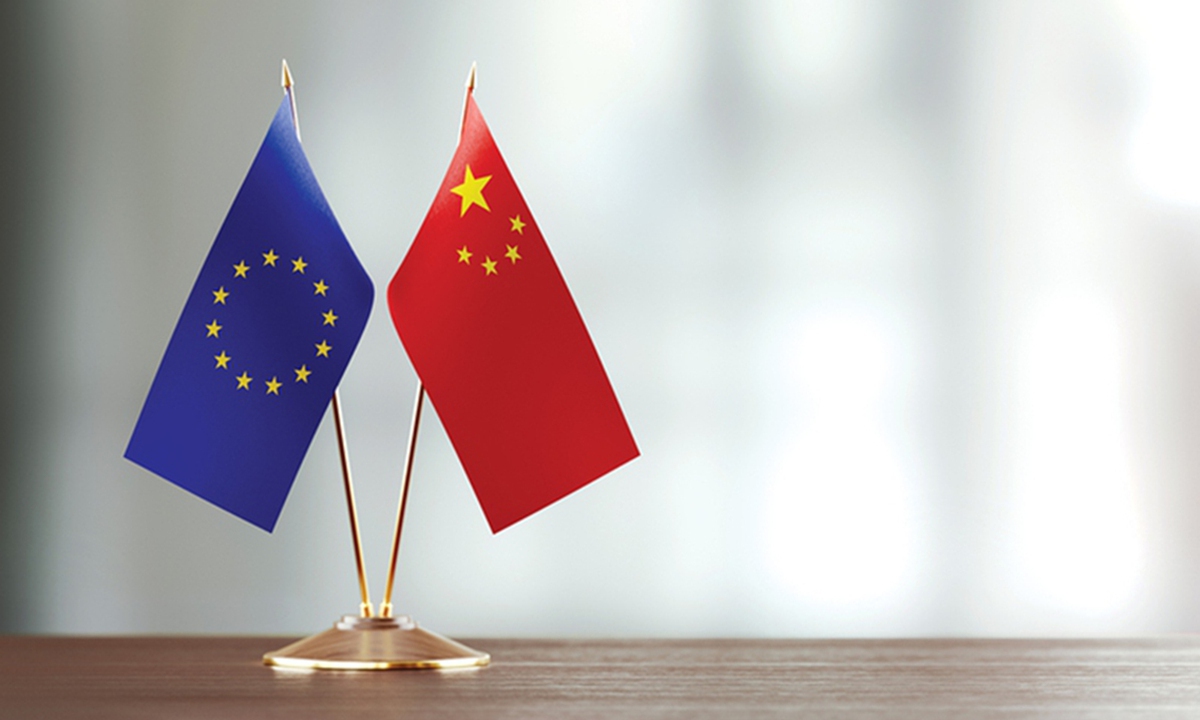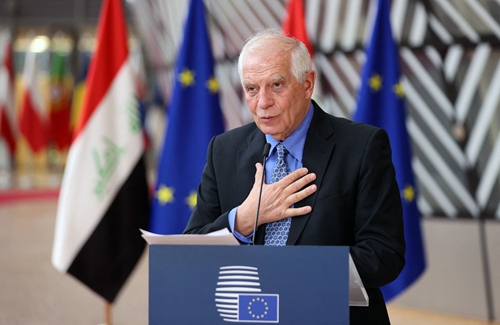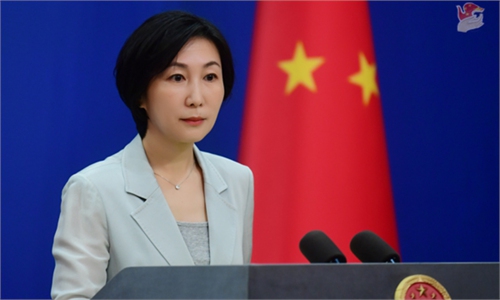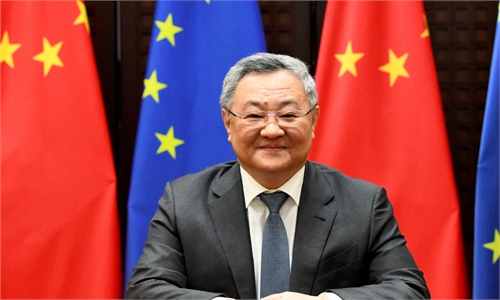China respects sovereignty of ex-Soviet republics: FM
China-EU relations should not be tied to Ukraine crisis: expert

China EU Photo: VCG
European foreign ministers arrived in Luxembourg for the Foreign Affairs Council meeting on Monday to discuss a number of topics, including China. However, there have been growing divisions and deepening disunity over how to deal with China within the bloc, especially after French President Emmanuel Macron's call for "strategic autonomy" and recent remarks by the Chinese envoy to France drew much attention.
Some Chinese experts believe that the ongoing debate on the EU's China policy reflected the conflicting positions of EU institutions, and Macron's recent trip may only accelerate the improvement of relations between "old Europe" and China, while some European countries with dominant anti-China political forces will use any opportunity to treat China with ideological bias, smearing it and creating more divisions using excuses such as hyping the remarks made by Chinese Ambassador to France Lu Shaye.
Baltic countries including Estonia, Latvia and Lithuania have "expressed their fury" at the recent comments made by Lu in a TV interview with French television channel LCI, with some media outlets including CNN saying the comments "sparked European outrage." Some foreign ministers touched on the topic when arriving at the council meeting in Luxembourg on Monday.
China-EU relations have been put under the spotlight in recent days as a debate was triggered by French President Macron, who called on the EU to have strategic autonomy and said it must resist pressure to become "America's followers" and avoid being dragged into the US-China confrontation over the Taiwan question, which also caused a "backlash" among some European officials.
EU's top diplomat Josep Borrell recently called for European navies to patrol the Taiwan Straits, pointing to a sentiment that was opposite to Macron's calls.
In response to Lu's remarks concerning the sovereign status of ex-Soviet states, the Chinese Foreign Ministry said on Monday that China respects the status of the former Soviet republics as sovereign countries after the Soviet Union's dissolution.
The Soviet Union was a federal state and as a whole was one subject of international law in international relations. This does not negate the republics' status as sovereign countries after the Soviet Union's dissolution, said Mao Ning, spokesperson of the ministry.
"To some extent, the Chinese Foreign Ministry made a clarification on the interview, which has been over-interpreted and hyped with ulterior motives by some Western media," Zhang Hong, an associate research fellow at the Institute of Russian, Eastern European and Central Asian Studies of the Chinese Academy of Social Sciences, told the Global Times on Monday.
The main tone of cooperation between China and Europe won't change, and on the basis of international law, support for globalization and consensus on safeguarding multilateralism, China-EU relations won't see many changes but due to coercion from geopolitical crises, there may be difficulties, Zhang said.
As the Ukraine crisis is the most pressing issue for European countries, it has also become the "backdrop" for how Europeans view other issues.
Fu Cong, head of the Chinese Mission to the EU, told the Chinese media outlet The Paper in a recent interview that China-EU relations are not aimed at, dependent on, or subject to any third party. The relationship between Europe and China should not be tied to the Ukraine issue.
The EU should not view China-EU relations through the "prism" of the Ukraine crisis and should not sacrifice these relations and China's interests as the cost of developing its relations with the US, Fu said.
Macron's trip helped improve China-EU relations, mainly between China and the countries of "old Europe" such as France and Germany, which need to improve cooperation by considering their actual interests, Cui Heng, an assistant research fellow from the Center for Russian Studies of East China Normal University, told the Global Times on Monday.
He added that this does not necessarily mean an overall improvement in relations between China and the European continent, especially when the region has been taken hostage ideologically under the transatlantic partnership.
"There is not necessarily a link between the Ukraine issue and China-EU relations. Some anti-China politicians inside Europe are using the issue as a topic to attack and smear China," Cui said. "Without the Ukraine crisis, officials in countries like Lithuania still treat China with ideological bias."




